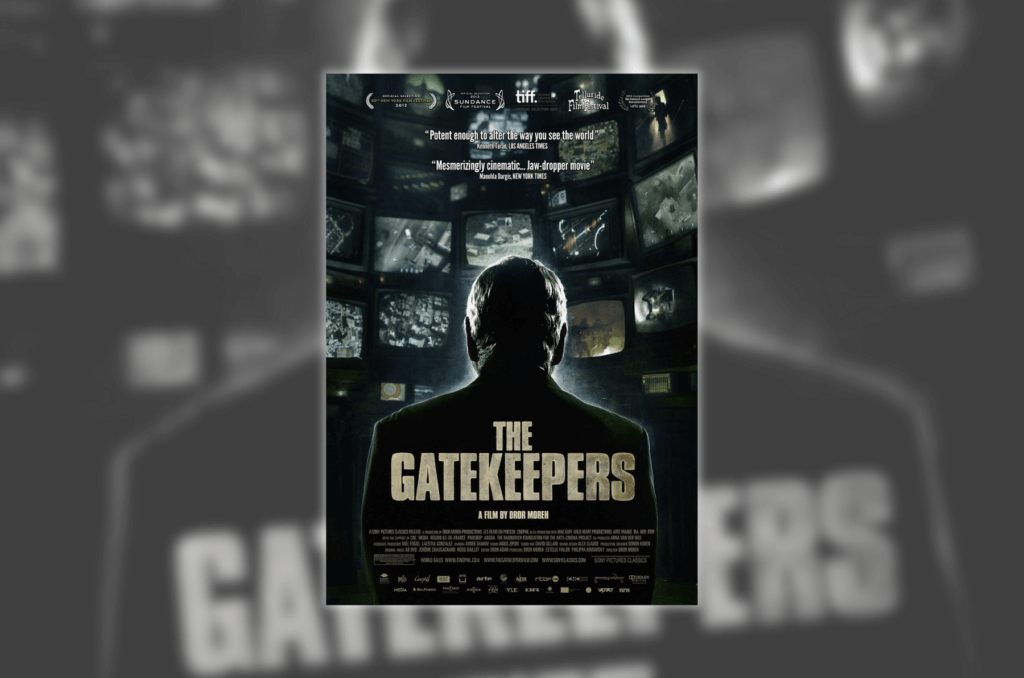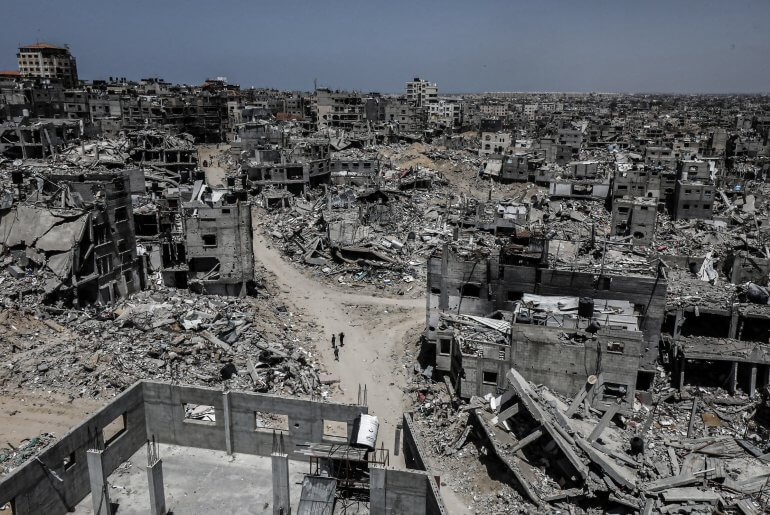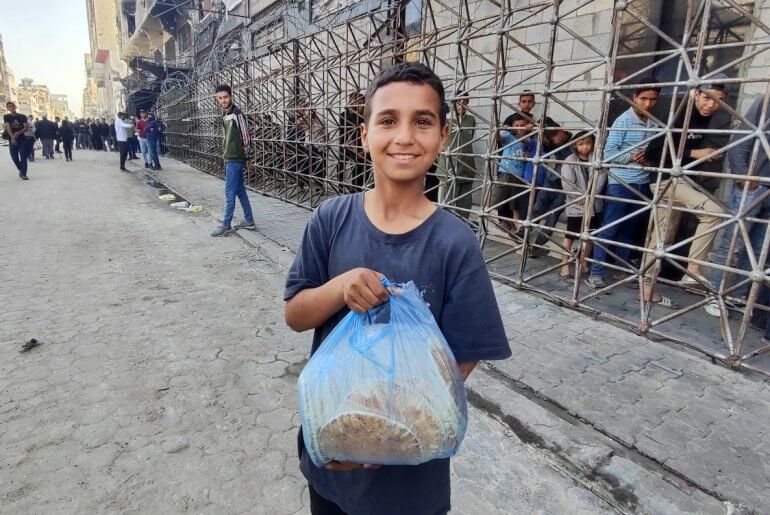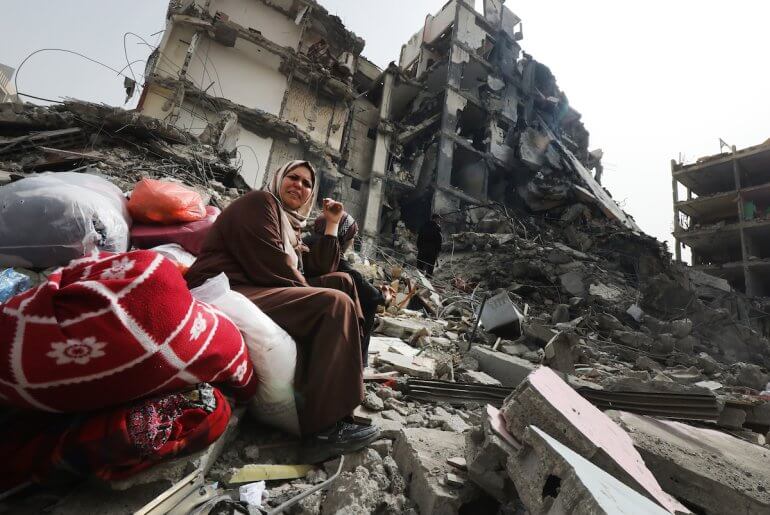When I sat down with The Gatekeepers director Dror Moreh, he seemed excited, perhaps even optimistic about the upcoming Academy Awards, however he is openly pessimistic about the future of Israel. There is no doubt that his fears for the future of his country, are what led him to take on the project of getting the six living former heads of Shin Bet, Israel’s domestic security service, to be interviewed for a documentary film.
How was Moreh able to convince these six former spies to appear in the film? According to him, in part, by comparing his vision for his film to the 2003 documentary by Errol Morris The Fog of War. Moreh was adamant that his subjects were offered absolutely no control over his final product. In the film, he doesn’t ask them why they chose to talk on camera, but he includes footage in the film which indicates that they each now desire their government to negotiate with those they fought, plotted against, and in many cases tortured. He also highlights in the film that they are collectively critical, if not of choices that they made, of the way the Prime Ministers they served chose to handle the conflict with the Palestinian people.
In the same way that looking at the negative of a photo shows you a different perspective, I find it informative to know what was left out of a film- especially a documentary, so I asked, “What got left on the cutting room floor?”
And he replied, “My heart, my lungs my legs, my organs, my everything.”
Moreh points out that there is much more from those interviews that people really should see. To that end he has plans to create a 5-part documentary series for Israeli TV (and American he hopes), and release a book as well. As he said, “It is very difficult to edit 6 men with incredible life stories” into 97 minutes.
For Moreh, the most difficult thing to leave out was the childhood stories of the Shin Bet directors. He gave an example about Avraham Shalom. Shalom, now 84, was the director of Shin Bet from 1980 to 1986. He told me the story of Shalom growing up during the rise of the Nazi party in Germany and being seriously beaten by kids at school because he was Jewish. Moreh said it pains him that at the end of the film when Shalom says that we treat the Palestinians as the Germans treated Jews, the story of Shalom’s childhood is not in the mind of the viewer. He feels the viewer should know that Shalom has been on the other side of that statement. Yet, he chose to leave that out of the film.
While Moreh cites the constraints of time for leaving out historical context of the lives of his subjects, historical context for the conflict itself is also missing from The Gatekeepers. Why leave out the historical context for the conflict which started well before the founding of Israel in 1948? Because Moreh says, “It is endless.” For him the pivotal point in the story he wanted to tell is 1967. When Israel seized control over all of the Palestinian land it now controls in 1967, he insists, the conflict shifted and Israeli society split. He says that was a breaking point for him.
He went on to explain that after Israel conquered the Sinai from the Egyptians, it withdrew to the internationally recognized border “in order to make peace”. But in “Judea and Samaria” (The West Bank), his voice trailed off. He was clearly trying to convey a contrast but seemed unable to speak the words he was thinking aloud. The example he gave instead was the analogy that that until 1967 Israel was like a vehicle going down a path on a mission in one direction. At that point, it turned on another path “in the wrong direction,” and has never turned back. “And since then it’s moving for me, towards the abyss.”
Moreh was adamant that for him “Peace means a Palestinian state, not the right to vote. An independent viable state that is Palestine.” I pressed him as to whether or not he asked these “experts” “if they ever suggested to their bosses, the prime ministers they each served under, that the best tool for assuring the security of Israel and Israelis is to sign a peace agreement with the Palestinians?
“At the end I understand what you mean by your question.” Moreh said, then paused. “It’s complicated… Israel cannot give democracy to everyone.”
“The Palestinians in the West Bank, they want their own country, they do not want to be citizens of Israel. They cannot give them citizenship, also they do not want that.”
He believes that these Shin Bet “gatekeepers” supported Rabin “when he went towards peace, they said it is a good path to walk.” “And… they opposed Netanyahu, who came after the assassination of Rabin– when he deteriorated the peace process.”
Ultimately these intelligence chiefs, in Moreh’s judgement were “state employees, they are not elected. Did they do enough? I don’t think they did enough. If you ask me personally I think they could have effected it more, and should have.”
Moreh believes their insight comes after they leave the job, that with hindsight these men gained a more strategic point of view as opposed to a tactical one. It was a theme he attempted to weave throughout his film, tactics versus strategy. Lack of strategy is why he “feels Israel is failing miserably,” and why he ended the film with Ami Ayalon, who directed Shin Bet from 1996 to 2000 saying, “We’re winning all the battles, and we’re losing the war.”
When asked if the film was made for an Israeli audience he exclaimed, “Absolutely!” before tracking back to say that it was also made for “an international audience” which was why he said he felt the need to include “the explanation of Oslo” then clarifying, “the Oslo accords” which he feels an international audience (including me apparently) would lack knowledge of. Elsewhere he admitted, “My main thing was to create something that will alter the way Israelis see reality. To tell a story they probably know, but from a different point of view.” In that case one can see it being helpful to start the story in 1967.
Moreh wanted the film to make it clear to its audiences that this conflict could and should have been resolved a long time ago.
Finally, I asked him directly if his film is in any way a kind of political intervention– if he is trying to save the Jewish state by ending the occupation. “You use very very big words to describe [the situation] but yes… I am trying to convince people with my methods to go where I think they should go. But at the end of the day the politicians are the decision makers.”
As he predicted at our meeting, Prime Minister Netanyahu will remain in office as a result of the recent Israeli elections. As for his opinion of the current head decision maker; Moreh said, “I think he is the worst Prime Minister ever in Israeli history– the biggest failure. I think he will be elected again. I cannot understand how the Israeli public can vote for him again. He fucked up in everything he did, in every aspect of his job.”
In an interview in The Jewish Week he was asked, “Do you actually foresee the destruction of the Jewish state?” Again he seemed to find speaking his fears aloud impossible. “I cannot say those words openly. It’s hard for me to say that Israel would be destroyed– almost unbearable to say those words– but it is not going to go to a good place.”




It is so sad. They got their state and they f*cked it up.
As Les said last year
“What purpose would a Judaism stripped of humanitarian values serve, not just Jews, but all mankind?”
They never got on to the right moral path. They never thought of the Palestinians as fully human, people just like them.
I saw the film last week, in Israel, and read the english subtitles.
“but he includes footage in the film which indicates that they each now desire their government to negotiate with those they fought”
I remember the words ‘talk to’ those they fought. I don’t remember the word ‘negotiate’.
“Moreh said it pains him that at the end of the film when Shalom says that we treat the Palestinians as the Germans treated Jews”
I don’t remember anyone saying that. I remember one of the Shin Bet heads saying that the occupation was the same as the German occupation of France, Belgium, etc, in World War 2.
“Moreh was adamant that for him “Peace means a Palestinian state, not the right to vote. An independent viable state that is Palestine.”
You omit to quote Shin Bet’s Avraham Shalom who said the immediately after the Six Day War, Israel did try to set up a Palestinian State in the West Bank.
“And… they opposed Netanyahu, who came after the assassination of Rabin– when he deteriorated the peace process.”
Failing to mention that the Oslo process was also deteriorated by Hamas suicide bombers.
– “The example he gave instead was the analogy that that until 1967 Israel was like a vehicle going down a path on a mission in one direction. At that point, it turned on another path “in the wrong direction,” and has never turned back. “And since then it’s moving for me, towards the abyss.”
This article made me think about the Costa Concordia disaster and Francesco Schettino. I guess Nutty like Schettino will stumble and fall into a life-boat when he think the ship is sinking…
“I think he is the worst Prime Minister ever in Israeli history– the biggest failure. I think he will be elected again. I cannot understand how the Israeli public can vote for him again. He fucked up in everything he did, in every aspect of his job.”
Like Costa Concordia, Israel has a Ship-owner (Sheldon Adelson) that use his influence to hire the worst captain he can find…
I hope Nethanyaho like Schettino can put the sinking ship on the beach and avoid total disaster.
But i fear that the captain will put the Israeli ship far from any beach and hit an iceberg, and the abyss is what is waiting.
“So we forgot about the Palestinian issue”
No, you didn’t. You thought they would all leave.
“Treat them like dogs” was what Dayan said. And you did.
And now animal rights are on the agenda.
Im looking forward to a Mondoweiss update on the destabilization of the Morsi regime in Egypt. I noticed Weekly Standard and FP writer David Kenner who interviewed the israeli ambassador on Syria, then interviewede the Liberal leader ElBaradei in Dec at FP; only to be shortly followed up by the ‘Black Bloc’ anarchist liberals attacking government buildings in suez. Some friends in Cairo report the perception in Egypt that the protestors receive pay from foreign NGOs like the one found holding tens of thousands in cash during the first revolutionary movement.
Is this payback for Morsi’s support for Gaza during the last Israeli attacks?